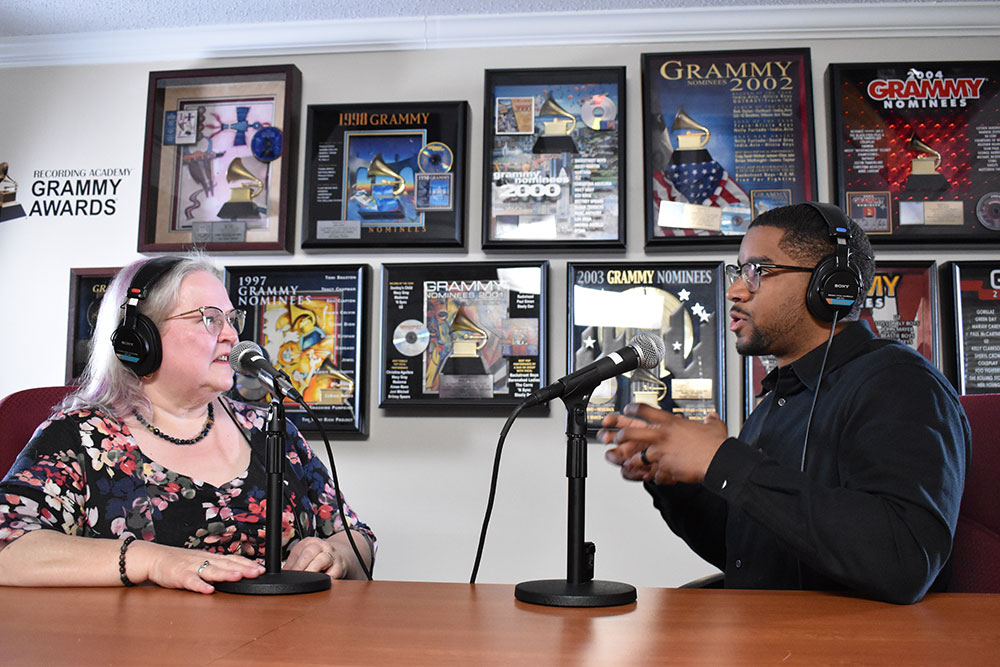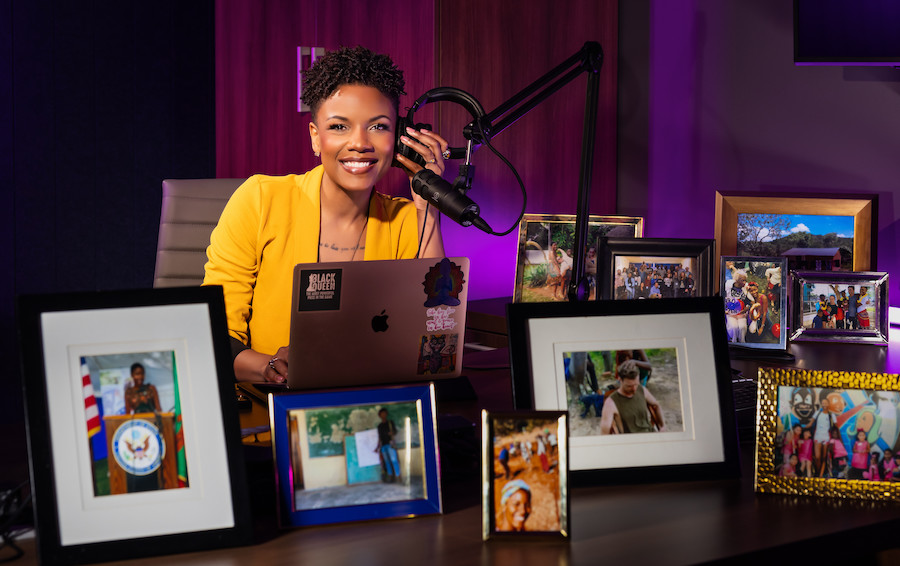
Mental Health First Aid Training Helps UPAC Keep Students Safe
KENNESAW, Ga. | May 7, 2018
Recognizing that young adults are the most likely group to experience suicidal thoughts, the Coles College of Business Undergraduate Program Advising Center recently completed a Youth Mental Health First Aid training course designed to help staff identify early warning signs in students and to guide those students towards critical life-saving resources.
Willowbrooke at Tanner, a behavioral health hospital that offers inpatient and outpatient services, provided the training to the UPAC’s team of academic advisors and career coaches on April 20. Instructor Kellie Roberts, Youth Mental Health First Aid Training Program Coordinator, broke down the symptoms of common mental health issues affecting young people, such as depression, anxiety, substance abuse, and suicidal ideations, and outlined how staff should respond.

Kellie Roberts leads the Mental Health First Aid Training Class
She said staff should understand the difference between mental health first aid – which UPAC staff can provide – and psychological counseling – which they cannot. Academic advisors are not trained medical professionals and cannot make diagnoses or provide treatment. They are, however, in a unique position to offer immediate assistance to students in crisis.
“Educators are the front-line people interfacing with young adults on a consistent basis,” Roberts said. “They need to be the eyes and the ears and know what to look for.”
Through a series of lessons and role-plays, Roberts taught advisors to use the five-part mental health action plan when they notice a student having difficulties coping, making comments about hurting themselves, or showing signs of academic distress. These steps include:
- Assess for risk of suicide or harm
- Listen nonjudgmentally
- Give reassurance and information
- Encourage appropriate professional help
- Encourage self-help and other support strategies
“The most important thing is to make sure the student is safe,” Roberts said. “If an incident occurs and you think the student is going to be a threat to themselves or others, then as a first-aider that’s your cue to step in and make sure the student’s safety remains priority number one.”

Groups discuss their responses to a simulated student crisis
Responding to an incident involves helping the student find counseling or other resources available to them or, in extreme cases where there is an imminent risk of suicide, alerting the authorities.
Academic Advisor Greg Lawrance attended the training session and appreciates having an action plan he can refer to when a student’s behavior concerns him. He added that the most important lesson he took away from the training was knowing when to get involved.
“The biggest thing is whether the behavior affects live, laugh, or love,” he said. “If it’s affecting how they live, how they laugh, or how they love, then they need to talk about it and get to the bottom of what’s going on.”
For Angela Evans, Executive Director of Undergraduate Programs, ensuring the UPAC staff knows the warning signs of mental health issues in young people was a deeply personal mission.
“I’m passionate about this issue as one of my friends lost her 21-year-old son to suicide last summer,” she said. “He was a student here at KSU. It hits home and it’s a painful wakeup call to simply pay attention to those silent cries for help.”
In addition to her own experiences, Evans is aware of the national statistics showing that 18-24 year-olds are at least three times more likely than other age groups to think about suicide, according to the U.S. Department of Health and Human Services. Meanwhile, one in five American adults suffers from mental health issues.
Given the real possibility that advisors and career coaches may encounter students facing serious issues, Evans plans to make Mental Health First Aid part of the UPAC’s training process going forward.
“This is definitely going to be an ongoing part of the training for Coles advisors and career coaches,” she said. “In addition, KSU will have a certified Mental Health First Aid trainer [Holly Brown, Coordinator of Outreach Services in the Office of Counseling and Psychological Services]. With Holly on staff, offering these trainings more frequently will be an option, as will be encouraging others on campus to get certified.”
Evans has also urged all Coles College faculty, department chairs, and leadership to take Mental Health First Aid training.

UPAC Staff After Completing the Mental Health First Aid Training
At the end of the session, Roberts spoke to the importance of reminding students suffering from mental health issues that there are people who can help them and that they should not give up.
“Recovery is possible,” she said. “Whatever they are going through is something that they can work through. If they own it and live it, then recovery is possible.”
-Patrick Harbin
Photos by Rosa Zavala Castillo
Related Posts

Kennesaw State Partnership Equips Local Entrepreneurs with Tools for Success

Gathering Spot CEO Ryan Wilson on Building a Social Club to Inspire Connections.

Kennesaw State MBA student leveraging degree work for a cause

CEO Magazine Ranks Kennesaw State Executive MBA Top Program in Georgia, No. 11 in the World














